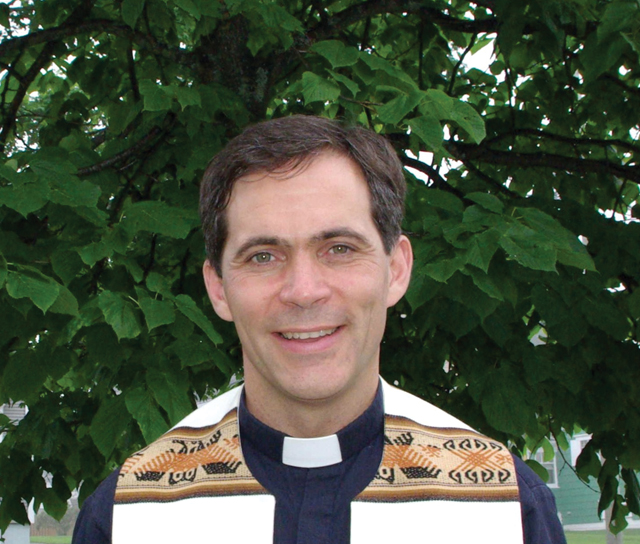PART OF OUR LIFE’S JOURNEY
A Lenten Reflection
By Fr. Shawn Daley, S.F.M.
January/February 2014
Return to Table of Contents
Print Article
Lent is a journey. But more than that, it is a chance each year for us to look at our life’s journey. Most Latin languages use a word for Lent, quadragisima, which means the 40th day before Easter. However in English we use a variant of the German word for spring, Lenz (or in Dutch, lente). Basically, the word means length—referring to fact that the days are getting longer. So Lent is a season that comes around every year; it is part of our life’s journey.
The 40 days of Lent give us an opportunity to reflect on our attitude towards conversion. Do we desire to become lovers of Christ’s mystical body by accepting that we are part of it? Or do we decide that we are better than all the rest and believe that we form something alone? These are the temptations—of power, glory, and greed (in French they rhyme: pouvoir, valoir, vouloir). All humans struggle with these temptations. When we are not struggling with them we are in a state of acedia; that is to say, spiritual lazi-ness, which means we do not want to journey, so we set ourselves apart from humanity and from the possibility of conversion.
Moses journeyed up Mount Sinai for 40 days; the People of God journeyed in the desert for 40 years; Elijah travelled 40 days to Mount Horeb; Jonah gives the people of Nineveh 40 days to repent; Jesus journeyed into the desert for 40 days; and the disciples waited 40 days for the Ascension. These are archetypes of people who are not lazy, of people who have paved for us the path of salvation. When we do not journey, we do not simply ignore Lent, we ignore life.
“The Spirit of God is something disturbing, driving…desiring to turf us out of our everydayness.”
Dom Odo Casel (1886-1948)
Catholic monk and liturgical pioneer
Here in Guyana, the land of many waters, journey is the hallmark of its people. Guyana is called the land of six peoples, all of whom have journeyed here over time and all of whom believe that they are Guyanese. If you wish to use biblical terms, they have all converted, after their journey, to become one people: Guyanese. The people have all come from somewhere else, but thanks to the commonality of their journey, they are now all Guyanese. They know their roots, but their real pride comes from being Guyanese.
In the Dominican Republic we do not see the same appreciation of people’s common journey. This island republic has decided that not all people who have journeyed there will be called Dominican. Recently the country has passed a controversial immigration law that renders stateless more than 250,000 Dominicans of Haitian descent. They are recognized neither by Haiti nor by the Dominican Republic, the country in which they were born. This has become an international case and the Apostolic Nuncio in the Dominican Republic is offering to help mediate the situation. Recently Pope Francis announced the appointment of Haiti’s first cardinal. My hope is that the creation of this post will help give a stronger voice to the people of Haiti as they negotiate with the Dominican government. Please keep this refusal to accept a common journey in your prayers.
The Guyanese are warm and hospitable people, and no matter what their faith tradition, they are respectful of all others. I hope that as you and I journey this Lent, we compare this to our life’s journey, just to see where we stand. Are we accepting our place in the Body of Christ and loving those around us? Or are we separating ourselves, drawing borders, boundaries, or barriers? To journey is to change, to become some-one new, someone renewed in hope, faith, strength, and love. It is an honor for me to be here in Guyana, journeying with a people who have become one.
Scarboro missioner Fr. Shawn Daley is presently serving the people of Guardian Angels parish in the region of Berbice, along the Atlantic coastline near the border of Suriname (formerly Dutch Guyana).
Return to Table of Contents
Print Article
